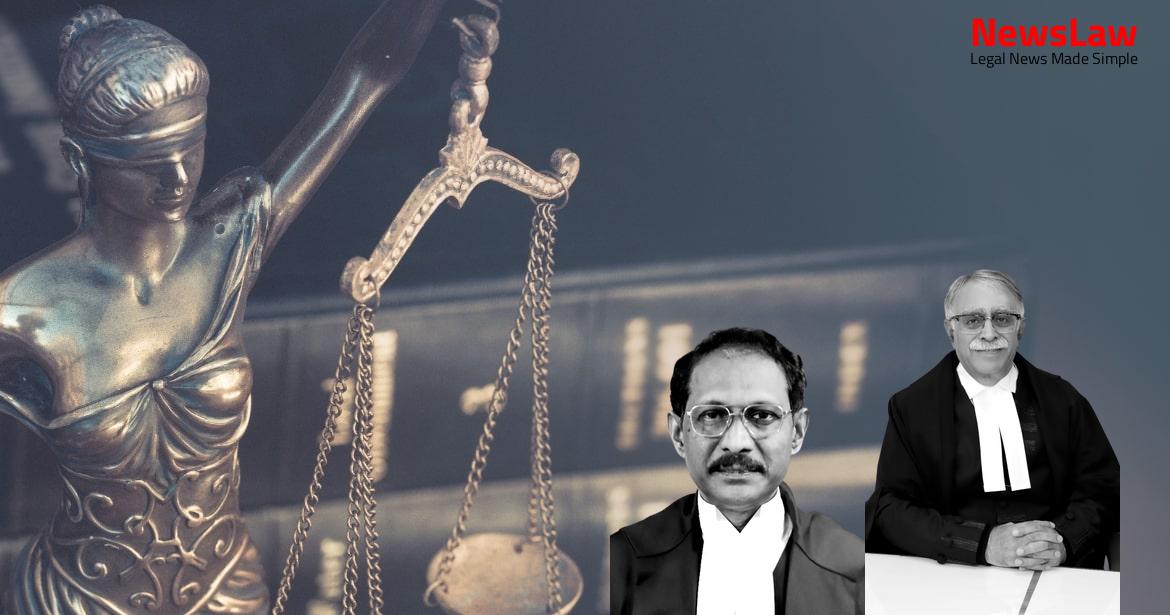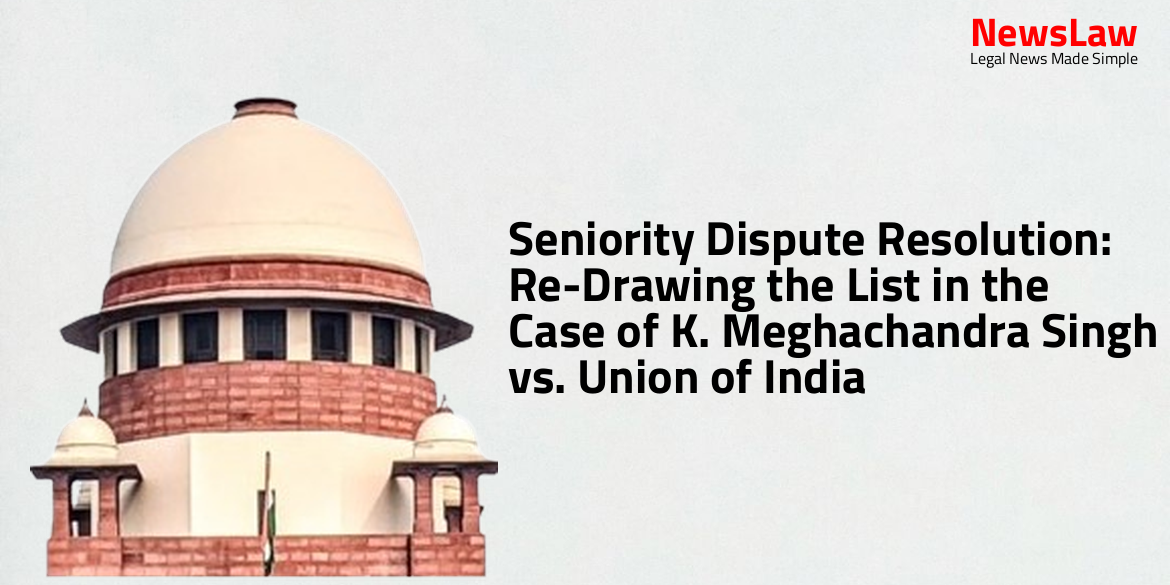Delve into a significant legal case involving employees of Eastern Railway in a recent judgment by the Supreme Court of India. The case revolves around the legality of the dismissal of the employees and raises questions on the sustainability of their termination from service. Let’s explore the details of this case together.
Facts
- The appeals filed by the Union of India challenge a common judgment and order by the High Court of Calcutta.
- The High Court reversed the order passed by the Central Administrative Tribunal and allowed the relief claimed by the employees.
- The employees were appointed on compassionate grounds with the Engineering Department of Eastern Railway.
- The termination appeals filed by the employees were dismissed as they could not provide documents to establish their initial appointment on compassionate grounds.
- Concerns were raised about the authenticity of documents related to the deceased father of one of the employees.
- The employees were under suspension due to a pending departmental inquiry based on forged documents.
- The applicants argue that no protection under the Constitution was given to them and no inquiry was conducted.
- The Central Administrative Tribunal dismissed the original applications filed against the termination order and the Appellate Authority’s order.
- The Tribunal found that the applicants did not provide service particulars of their fathers as required in the appellate order.
- The High Court held that the order of the Tribunal was untenable.
- The Railway Servants (Discipline & Appeal) Rules, 1968 were misinterpreted.
- Rule 14 of the Railway Servants (Discipline & Appeal) Rules, 1968 only provides for dismissal of temporary employees upon proven charges.
- There must be a disciplinary inquiry before dismissal of a person in regular service.
- The appellant-employers were directed to reinstate the respondent-employees with the liberty to hold a departmental inquiry.
- The Disciplinary Authority terminated Sri Biswanath Biswas due to grounds exposed in the show cause notice and fraudulent means of initial appointment.
Also Read: Harmony and Dignity: Upholding Human Rights in Marital Discord Case
Issue
- The issue for consideration is the legality of the dismissal from service of the employees in question.
- The question is whether the dismissal is legally sustainable or not.
- The record has been perused in detail to address this issue.
Also Read: The Sentencing Dilemma: Supreme Court’s Decision in the Case of Attempted Murder Conviction
Analysis
- The impugned judgment was stayed by the Court on July 29, 2013, with regular extensions.
- The original order of termination was not stayed by either the High Court or the Supreme Court.
- Since the suspension orders were issued, the respondent-employees have not provided any service to the appellant-employer.
- Notices must be clear and precise to inform the other party effectively and allow for a proper defense.
- Denial of notice and opportunity to respond can render administrative decisions as vitiated.
- Compassionate appointment cannot be granted after a lapse of a reasonable period as it is not a vested right and is meant to provide minimum relief to families facing financial crisis due to the death of the sole breadwinner.
- Appointment on compassionate grounds is an exception to the rule that all eligible candidates should be considered for vacant posts, as per Articles 14 and 16 of the Indian Constitution.
- The appointment on compassionate grounds is a concession, not a right.
- Individuals approaching the High Court under Article 226 must provide all facts without reservation, as the High Court acts as a court of equity in addition to being a court of law.
- Violation of natural justice principles, including hearing the other side and unbiased hearing, can lead to refusal of petitions in court proceedings.
- The societal shift towards materialism has led to dishonesty and suppression of facts in litigation, contradicting the value of truth and non-violence upheld by Indian society.
- Compassionate appointment aims to help families overcome sudden financial crises, and authorities must verify the family’s actual financial condition before granting such appointments.
- The importance of presenting accurate and truthful statements in court applications has been emphasized, reflecting the integral role of truth in the justice system of the pre-Independence era.
Also Read: Landmark Supreme Court Judgment on Delayed Possession of Flats
Case Title: UNION OF INDIA AND ORS. Vs. PROHLAD GUHA . ETC. (2024 INSC 563)
Case Number: C.A. No.-004434-004437 – 2014



